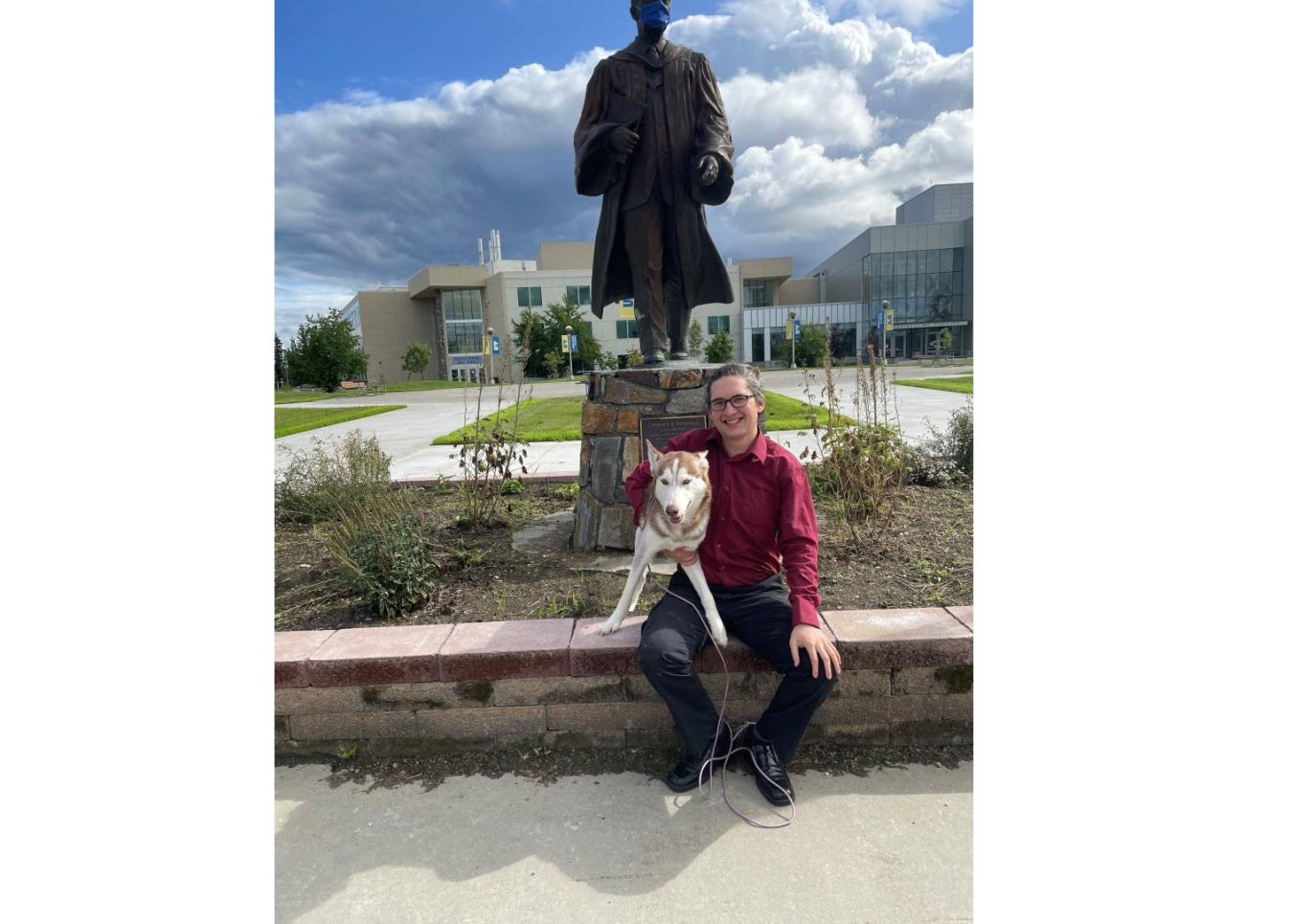Name: Josh Hostler; Institution: University of Alaska Fairbanks; Program: Arctic Energy Office Intern; Education Level: Graduate Student
August 20, 2021Josh Hostler was an intern in the Arctic Energy Office who designed and built a data logger device to analyze ebike use. He is a graduate student in atmospheric sciences at the University of Alaska Fairbanks.
Your project involved researching micro mobility—the use of electric bikes—in cold climates. How did your project evolve?
I started out talking to people in the cycling community to see which questions they were interested in and then I would answer them with data.

Josh Hostler
The goal was to get a device to collect useful data on ebike use. Local bike rental shops might want to collect more performance data. We have 3 bikes of our own as part of the study.
My original idea was not one that was user friendly. What if we just built an ebike? My general feeling of Fairbanks is that it’s DIY. What if we built our own bike and we would not have to ask (the manufacturer) but know what sensors to put in? I went from there to a list of data communication (needs) from motors and sensors and batteries that “talk” on a controller area network (a CAN bus). The goal is to find battery information like voltage. If you know voltage and amps, you can know state of charge and energy usage. The battery state of charge is in the order of most fundamental. I also wanted to collect Wh (energy) per mile, location, and acceleration. I wanted to compare performance metrics to environmental variables and, most importantly, temperature.
Do you think the Fairbanks community is a good candidate for ebike infrastructure?
The bike community in the Fairbanks size is large. My understanding of the Fairbanks community is people come to go to school or do research and are more inclined to activism and environmental consciousness, so I do think we see above average inclination for not driving the car everywhere. Bikes are still a viable means of transportation in winter as long you are OK with cold. Lots of people ride in winter. How ebikes will work in winter is a goal of this project. I’m including data collection and not recommending for winter performance. I see the worth of using them, just not as much in winter.
The Arctic Energy Office owns ebikes for employee use. What did you see as the pros and cons of an ebike vs. a road bike?
I was skeptical how revolutionary ebikes could be, but after riding one, I think that ebikes are an amazing way to replace cars on the road to get to work or get groceries. It uses a fraction of the emissions for that trip compared to using gas and burning oil. I’m not super in shape and can go from the University of Fairbanks to Fred Meyer (grocery store) without breaking a sweat. I’ve heard from a lot of people who were skeptical of ebikes and then they get on one and see how much commuting can be more feasible. You don’t need a license to use the bike, so it’s a good equalizer for the community. It’s not just for urban cities! I added GPS into the collection to see where people are using bikes. Local governments will have important infrastructure decisions like routing car traffic and bike lanes for bike safety.
Ebikes are reliable and more accessible to normal biking. You plug them into the wall to recharge. Normal bikes you can fix but ebikes you are not able to handle maintenance issues. You have to take it to the dealership. Because they are electronic, all electronics have lifespans and planned obsolescence.
I am collecting lots of external data so some day we have a data set, and I can publish it. I won’t have time to do the data analysis (due to the internship timeframe). The goal is cold-weather performance. I’ve had to think 6 months ahead and pay attention to how to make the project survive after I’m gone.
What will your final project look like? What do you hope DOE will do with your research?
What I plan to deliver is a fine-tuned data logger. It’s simple to use--blinks a few times and you turn on a switch. It will have all the accompanying documentation on what data it’s collecting, how to use it, and information on possible errors that could return faults. The hard part is determining compatibility that could be replicated. In one year, I hope to have a data set published from the data logger. The cherry on top is if any of the methods are used to replicate what I’ve done to collect core data. That would leave me with a good feeling.
How was your experience in the Minority Educational Institution Student Partnership Program (MEISPP)? Were there webinars that you will use in your career?
My feeling from the project is a lot is geared toward undergrads and I am a graduate student. A lot of the advice I’ve figured out is through my own experiences.
You are studying atmospheric science. How will this internship help you in your future career plans?
I get to practice using Python to write my thesis. I acquired a new skill. I went from a beginner to a mediocre coder. That’s a big thing. The device uses a Python script to send data from multiple devices using open-source code.
What is your perspective now on micro mobility options in our new future?
The biggest thing is trying out the ebike and realizing they are useful devices. Initially I was skeptical how ebikes would be and how I must get people on board. If people tested them, they’d be more interested and have friends who get them and think that’s cool. I was skeptical and now I am a believer.

